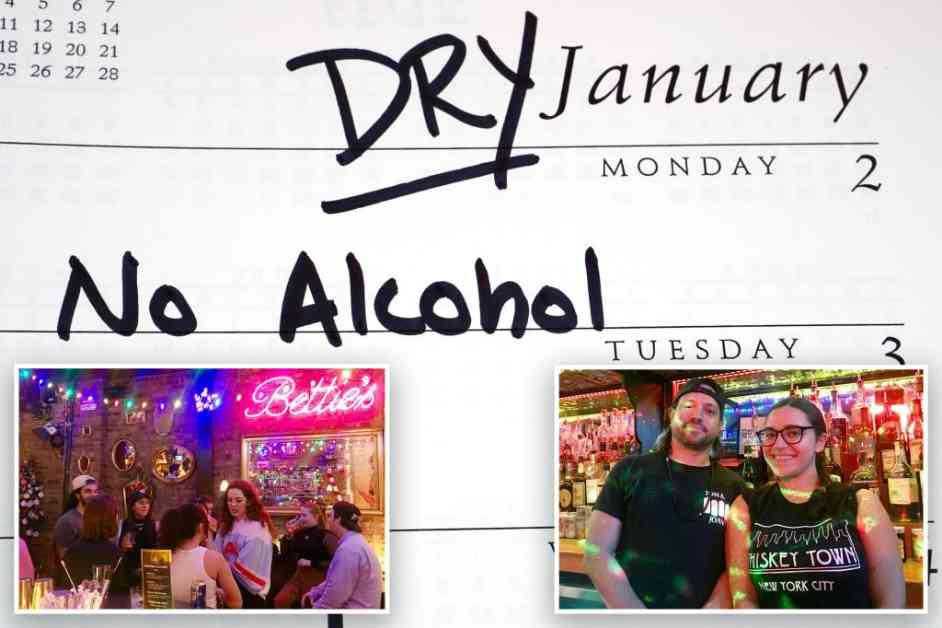New Yorkers Criticize Dry January Challenge: ‘It’s Stupid’
The once-popular trend of Dry January seems to be evaporating in the bustling streets of New York City, with many residents denouncing the sober initiative as “stupid” and opting to keep their glasses full for the foreseeable future.
As the clock ticked down to the end of the weekend in 2024, The Post caught up with over 100 revelers, only to find a mere handful willing to commit to a dry month ahead. From college students to urban planners, the consensus was clear: Dry January was not on their agendas.
New Yorkers Speak Out
Celine DeJesus, a 21-year-old Brooklynite celebrating a friend’s birthday at Verlaine in the East Village, made her stance unequivocally clear, stating, “I am definitely not doing Dry January, that’s not gonna happen.” Her sentiments were echoed by her eight companions, all in unison rejecting the idea.
Meanwhile, 35-year-old firefighter Dimitri Bierre’Lius from Queens humorously quipped, “I am not a quitter,” emphasizing his commitment to the drink amidst the fading allure of Dry January.
Expert Insights
Although Dry January has been championed as a path to improved sleep, weight loss, and enhanced mood, the recent lack of enthusiasm among New Yorkers suggests a shift in attitudes towards the trend. According to a Civic Science study, 25% of Americans over 21 embraced Dry January in 2024, signaling a significant cultural movement that now seems to be losing its appeal.
Barflies Weigh In
For the denizens of New York City, the decision to forego Dry January is influenced by a variety of factors, from stress relief to social obligations. Some bar patrons expressed skepticism towards the trend, with one labeling it as “stupid,” while others found solace in the camaraderie of shared experiences with friends.
A Personal Perspective
As the allure of Dry January wanes for many New Yorkers, one anonymous urban planner candidly shared his reasons for not partaking in the trend. Reflecting on past experiences with substances, he acknowledged the role of alcohol in easing anxieties and fostering connections with others. Despite the societal pressures to participate in Dry January, he remained resolute in his decision to continue imbibing.
In a city renowned for its vibrant nightlife, the fading interest in Dry January may spell relief for local bars but also highlights the complex relationship residents have with alcohol. As New Yorkers navigate the social landscape of the city, the choice to abstain from Dry January reflects a broader conversation on moderation, peer influence, and personal well-being in an ever-evolving metropolis.












